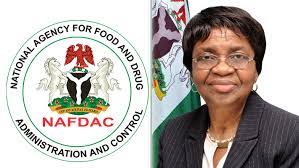PAG Felicitates Muslims on Commencement of Ramadan Fast
February 18, 2026TOP TEN MUSLIM UNIVERSITIES IN AFRICA
February 14, 2026ANALYSIS: Why Nigeria GDP is not the best in Africa Despite having the largest market
February 10, 2026Banned Sachet Beverages Contain 30% Alcohol, Says NAFDAC
Banned Sachet Beverages Contain 30% Alcohol, Says NAFDAC

The National Agency for Food and Drug Administration and Control (NAFDAC) has said that the alcoholic content in sachets or small bottles of less than 200ml is 30 per cent.
NAFDAC, however, said this percentage is too high, noting that beer contains only four to eight per cent alcohol.
The agency disclosed this in a press statement made available to our correspondent by the Head of Public Relations Office, NAFDAC, Christiana Obiazikwor.
The statement was tagged, “What Nigerians should know about alcohol in sachet and less than 200 ml PET bottles.”
NAFDAC commenced the enforcement of the ban on alcoholic beverages in sachets, PET, and glass bottles of 200ml and below, on February 1, 2024.
The Director-General of the agency, Prof Mojisola Adeyeye, during a press briefing in Abuja, noted that as of January 31, 2024, no such beverages were registered with the agency.
“The agency commenced nationwide enforcement actions on February 1, 2024, to enforce the implementation of the new policy,” she said.
Adeyeye’s announcement had generated repeated protests by distillers and labour unions, who said the move would cost 500,000 workers their jobs.
The agency in the statement, however, said, “NAFDAC did not ban alcohol production in bigger bottles. The Agency only banned alcohol in containers or packing that a child can easily conceal, I.e., sachet or PET bottles less than 200ml
“The alcoholic content in sachet or PET bottles less than 200ml is 30 per cent. Beer has four to eight per cent alcohol.
“The Association of Food, Beverage & Tobacco Employers and Distillers and Blenders Association of Nigeria signed an agreement with MOH and NAFDAC in December 2018 that they will phase out production of alcohol in sachet and PET bottles less than 200 ml by January 31, 2024. The agreement document is available. A five-year phase-out notice should be sufficient.”
The agency noted that Nigeria was one of the 193 Member States of the World Health Organisation that reached a historical consensus on a global strategy to reduce the harmful use of alcohol by adopting resolution WHA63.13 at the Sixty-third session of the World Health Assembly, held in Geneva in 2010.
“This was seven years before my time, an agreement signed by Nigeria with other nations that we will protect youth by making alcohol not easily reachable and accessible,” it added.
Adeyeye warned that the people mostly at risk of the negative effects of consumption of the banned pack sizes of alcoholic beverages are the under-aged, commercial vehicle drivers and riders.
END.








